HSBC 2010 Annual Report Download - page 94
Download and view the complete annual report
Please find page 94 of the 2010 HSBC annual report below. You can navigate through the pages in the report by either clicking on the pages listed below, or by using the keyword search tool below to find specific information within the annual report.-
 1
1 -
 2
2 -
 3
3 -
 4
4 -
 5
5 -
 6
6 -
 7
7 -
 8
8 -
 9
9 -
 10
10 -
 11
11 -
 12
12 -
 13
13 -
 14
14 -
 15
15 -
 16
16 -
 17
17 -
 18
18 -
 19
19 -
 20
20 -
 21
21 -
 22
22 -
 23
23 -
 24
24 -
 25
25 -
 26
26 -
 27
27 -
 28
28 -
 29
29 -
 30
30 -
 31
31 -
 32
32 -
 33
33 -
 34
34 -
 35
35 -
 36
36 -
 37
37 -
 38
38 -
 39
39 -
 40
40 -
 41
41 -
 42
42 -
 43
43 -
 44
44 -
 45
45 -
 46
46 -
 47
47 -
 48
48 -
 49
49 -
 50
50 -
 51
51 -
 52
52 -
 53
53 -
 54
54 -
 55
55 -
 56
56 -
 57
57 -
 58
58 -
 59
59 -
 60
60 -
 61
61 -
 62
62 -
 63
63 -
 64
64 -
 65
65 -
 66
66 -
 67
67 -
 68
68 -
 69
69 -
 70
70 -
 71
71 -
 72
72 -
 73
73 -
 74
74 -
 75
75 -
 76
76 -
 77
77 -
 78
78 -
 79
79 -
 80
80 -
 81
81 -
 82
82 -
 83
83 -
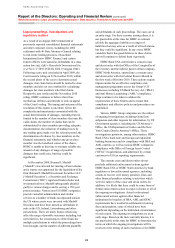 84
84 -
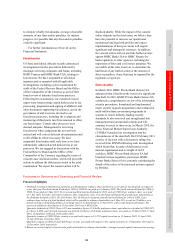 85
85 -
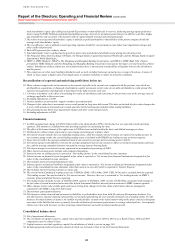 86
86 -
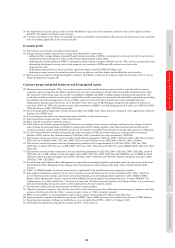 87
87 -
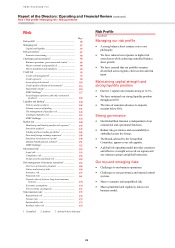 88
88 -
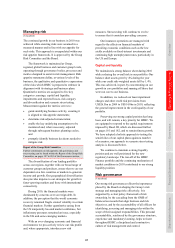 89
89 -
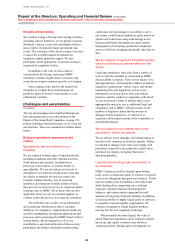 90
90 -
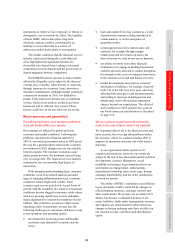 91
91 -
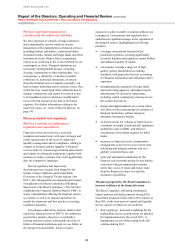 92
92 -
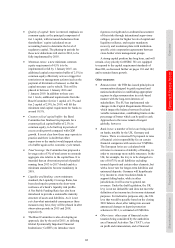 93
93 -
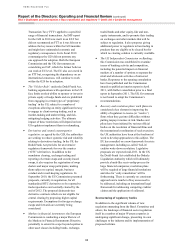 94
94 -
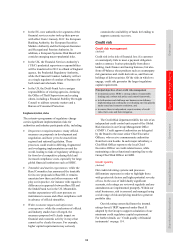 95
95 -
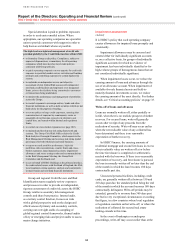 96
96 -
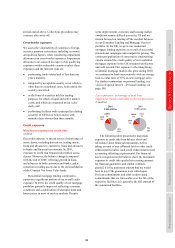 97
97 -
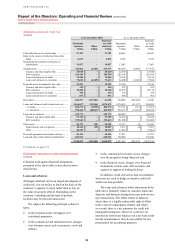 98
98 -
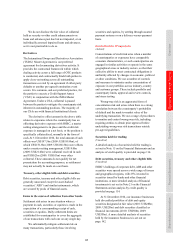 99
99 -
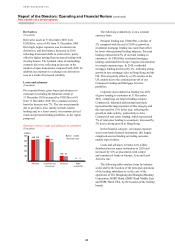 100
100 -
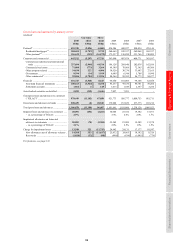 101
101 -
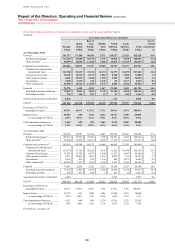 102
102 -
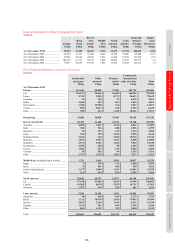 103
103 -
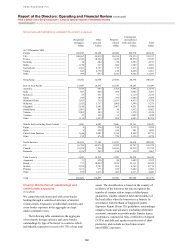 104
104 -
 105
105 -
 106
106 -
 107
107 -
 108
108 -
 109
109 -
 110
110 -
 111
111 -
 112
112 -
 113
113 -
 114
114 -
 115
115 -
 116
116 -
 117
117 -
 118
118 -
 119
119 -
 120
120 -
 121
121 -
 122
122 -
 123
123 -
 124
124 -
 125
125 -
 126
126 -
 127
127 -
 128
128 -
 129
129 -
 130
130 -
 131
131 -
 132
132 -
 133
133 -
 134
134 -
 135
135 -
 136
136 -
 137
137 -
 138
138 -
 139
139 -
 140
140 -
 141
141 -
 142
142 -
 143
143 -
 144
144 -
 145
145 -
 146
146 -
 147
147 -
 148
148 -
 149
149 -
 150
150 -
 151
151 -
 152
152 -
 153
153 -
 154
154 -
 155
155 -
 156
156 -
 157
157 -
 158
158 -
 159
159 -
 160
160 -
 161
161 -
 162
162 -
 163
163 -
 164
164 -
 165
165 -
 166
166 -
 167
167 -
 168
168 -
 169
169 -
 170
170 -
 171
171 -
 172
172 -
 173
173 -
 174
174 -
 175
175 -
 176
176 -
 177
177 -
 178
178 -
 179
179 -
 180
180 -
 181
181 -
 182
182 -
 183
183 -
 184
184 -
 185
185 -
 186
186 -
 187
187 -
 188
188 -
 189
189 -
 190
190 -
 191
191 -
 192
192 -
 193
193 -
 194
194 -
 195
195 -
 196
196 -
 197
197 -
 198
198 -
 199
199 -
 200
200 -
 201
201 -
 202
202 -
 203
203 -
 204
204 -
 205
205 -
 206
206 -
 207
207 -
 208
208 -
 209
209 -
 210
210 -
 211
211 -
 212
212 -
 213
213 -
 214
214 -
 215
215 -
 216
216 -
 217
217 -
 218
218 -
 219
219 -
 220
220 -
 221
221 -
 222
222 -
 223
223 -
 224
224 -
 225
225 -
 226
226 -
 227
227 -
 228
228 -
 229
229 -
 230
230 -
 231
231 -
 232
232 -
 233
233 -
 234
234 -
 235
235 -
 236
236 -
 237
237 -
 238
238 -
 239
239 -
 240
240 -
 241
241 -
 242
242 -
 243
243 -
 244
244 -
 245
245 -
 246
246 -
 247
247 -
 248
248 -
 249
249 -
 250
250 -
 251
251 -
 252
252 -
 253
253 -
 254
254 -
 255
255 -
 256
256 -
 257
257 -
 258
258 -
 259
259 -
 260
260 -
 261
261 -
 262
262 -
 263
263 -
 264
264 -
 265
265 -
 266
266 -
 267
267 -
 268
268 -
 269
269 -
 270
270 -
 271
271 -
 272
272 -
 273
273 -
 274
274 -
 275
275 -
 276
276 -
 277
277 -
 278
278 -
 279
279 -
 280
280 -
 281
281 -
 282
282 -
 283
283 -
 284
284 -
 285
285 -
 286
286 -
 287
287 -
 288
288 -
 289
289 -
 290
290 -
 291
291 -
 292
292 -
 293
293 -
 294
294 -
 295
295 -
 296
296 -
 297
297 -
 298
298 -
 299
299 -
 300
300 -
 301
301 -
 302
302 -
 303
303 -
 304
304 -
 305
305 -
 306
306 -
 307
307 -
 308
308 -
 309
309 -
 310
310 -
 311
311 -
 312
312 -
 313
313 -
 314
314 -
 315
315 -
 316
316 -
 317
317 -
 318
318 -
 319
319 -
 320
320 -
 321
321 -
 322
322 -
 323
323 -
 324
324 -
 325
325 -
 326
326 -
 327
327 -
 328
328 -
 329
329 -
 330
330 -
 331
331 -
 332
332 -
 333
333 -
 334
334 -
 335
335 -
 336
336 -
 337
337 -
 338
338 -
 339
339 -
 340
340 -
 341
341 -
 342
342 -
 343
343 -
 344
344 -
 345
345 -
 346
346 -
 347
347 -
 348
348 -
 349
349 -
 350
350 -
 351
351 -
 352
352 -
 353
353 -
 354
354 -
 355
355 -
 356
356 -
 357
357 -
 358
358 -
 359
359 -
 360
360 -
 361
361 -
 362
362 -
 363
363 -
 364
364 -
 365
365 -
 366
366 -
 367
367 -
 368
368 -
 369
369 -
 370
370 -
 371
371 -
 372
372 -
 373
373 -
 374
374 -
 375
375 -
 376
376 -
 377
377 -
 378
378 -
 379
379 -
 380
380 -
 381
381 -
 382
382 -
 383
383 -
 384
384 -
 385
385 -
 386
386 -
 387
387 -
 388
388 -
 389
389 -
 390
390 -
 391
391 -
 392
392 -
 393
393 -
 394
394 -
 395
395 -
 396
396
 |
 |

HSBC HOLDINGS PLC
Report of the Directors: Operating and Financial Review (continued)
Risk > Challenges and uncertainties > Macro-prudential and regulatory // Credit risk > Credit risk management
92
Transaction Tax (‘FTT’) applied to a specified
range of financial transactions. An IMF report
for the G20 in 2010 saw merit in an FAT but
did not recommend an FTT as it was felt not to
address the key issues within the G20 mandate
and might have unintended economic and
regulatory consequences. In its Seoul 2010
communique the G20 did not promote any
one approach for adoption. Both the European
Commission and the UK Government are
considering an FAT, which the former believes
can work at EU level. The EU also sees merit in
an FTT but, recognising the dependency on an
international consensus, will continue to work
within the G20 for its adoption.
• The ‘Volcker Rule’: under the Dodd-Frank Act,
banking organisations with operations in the US
face limits on their ability to sponsor or invest in
private equity or hedge funds and are prohibited
from engaging in certain types of ‘proprietary
trading’ in the US, subject to a number of
exceptions allowing an entity significant leeway
to engage in client-serving trading, such as
market-making and underwriting, and risk-
mitigating hedging activities. The ultimate
impact of these restrictions will depend on how
US regulators implement them in rulemaking.
• Derivatives and central counterparties
regulation: as agreed by the G20, the authorities
are seeking to reduce systemic risk and volatility
relating to derivatives trading. In the US, the
Dodd-Frank Act provides for an extensive
regulatory framework for over the counter
(‘OTC’) derivatives. In addition to the
mandatory clearing, exchange trading and
reporting of certain swaps and security-based
swaps, it also requires the registration of swap
dealers and major swap participants, making
them subject to capital, margin, business
conduct and record-keeping regulations. In
September 2010, the EU Commission presented
proposals, currently in negotiation, for all
standardised OTC derivatives to be reported to
trade repositories and centrally cleared by the
end of 2012. The proposal disincentivises
derivative contracts which are not eligible for
central clearing by proposing higher capital
requirements. Exemptions for foreign exchange
swaps and forwards are currently being
considered.
• Markets in financial instruments: the European
Commission is conducting a major Review of
the Markets in Financial Instruments Directive,
potentially to extend its scope beyond equities to
other asset classes including bonds, exchange-
traded funds and other equity-like and non-
equity instruments, and to promote their trading
on exchanges and other markets that will be
subject to regulation. It also proposes giving
additional power to regulators to ban trading in
products that are eligible to be cleared but for
which no clearing solution is currently available.
• The UK Independent Commission on Banking:
this Commission was established to examine
issues of banking activity and competition,
including the potential impact on financial
markets of a number of options to separate the
retail and wholesale activities of universal
banks. Responses to the opening consultation
have been published and the Commission
intends to publish an interim report in April
2011, with further consultation prior to a final
report in September 2011. The UK Government
is not bound to adopt the Commission’s
recommendations.
• Recovery and resolution plans: such plans are
considered a key element in improving the
ability of regulators to rescue (or ‘resolve’)
firms when they get into difficulties without
putting taxpayer monies at risk. Studies and
pilots have been initiated by various official
bodies on the resolution of financial firms and
the international coordination of such exercises;
the UK authorities have been at the forefront of
work to develop approaches to this subject. The
EU has consulted on a new framework for crisis
management, including so-called ‘bail-in’
creditor write-down resolution. Legislative
proposals are expected mid-2011. In the US,
the Dodd-Frank Act established the Orderly
Liquidation Authority which will ultimately
provide a bank-like receivership process for
large financial companies; resolution plans
will be required of large financial institutions
and rules for ‘early remediation’ will be
forthcoming. There is currently no consistent
approach and a number of key areas need to
be addressed, including an international legal
framework for addressing competing creditor
claims and the application of collateral.
Restructuring of regulatory bodies
In addition to the significant volume of new
regulation emanating from the Basel Committee and
others, the landscape of financial sector regulation
itself in a number of major Western countries is
undergoing significant change, presenting its own
challenges to the industry and its implementation of
proposed reforms.
